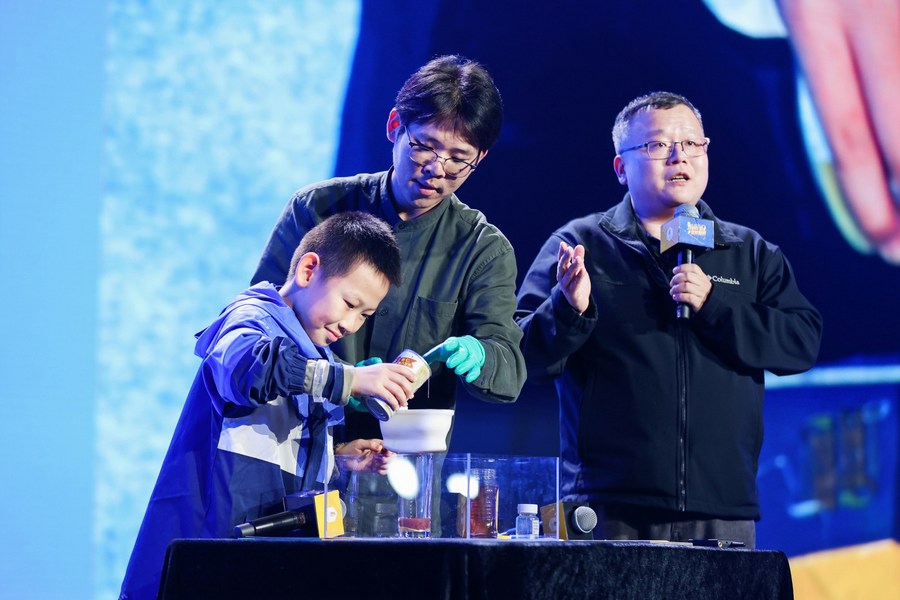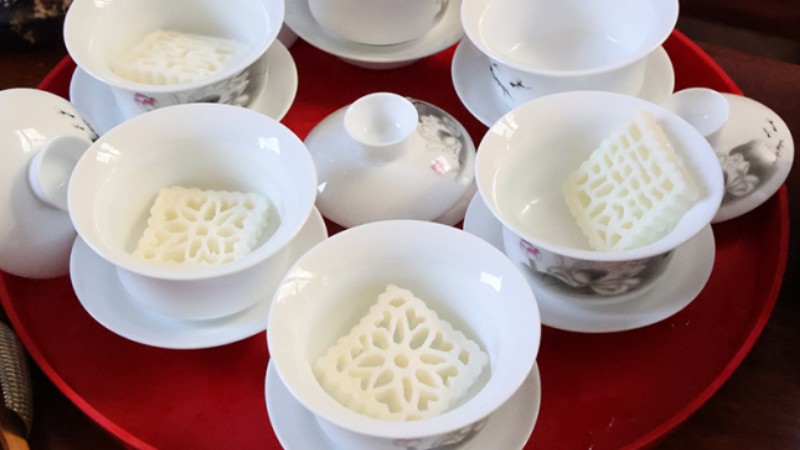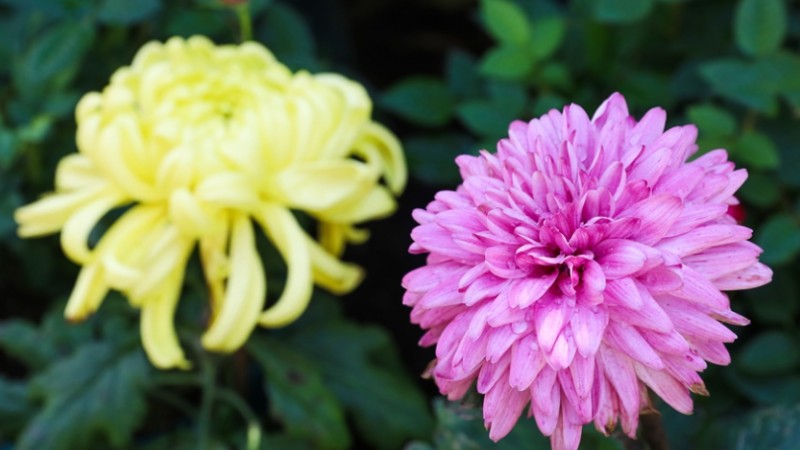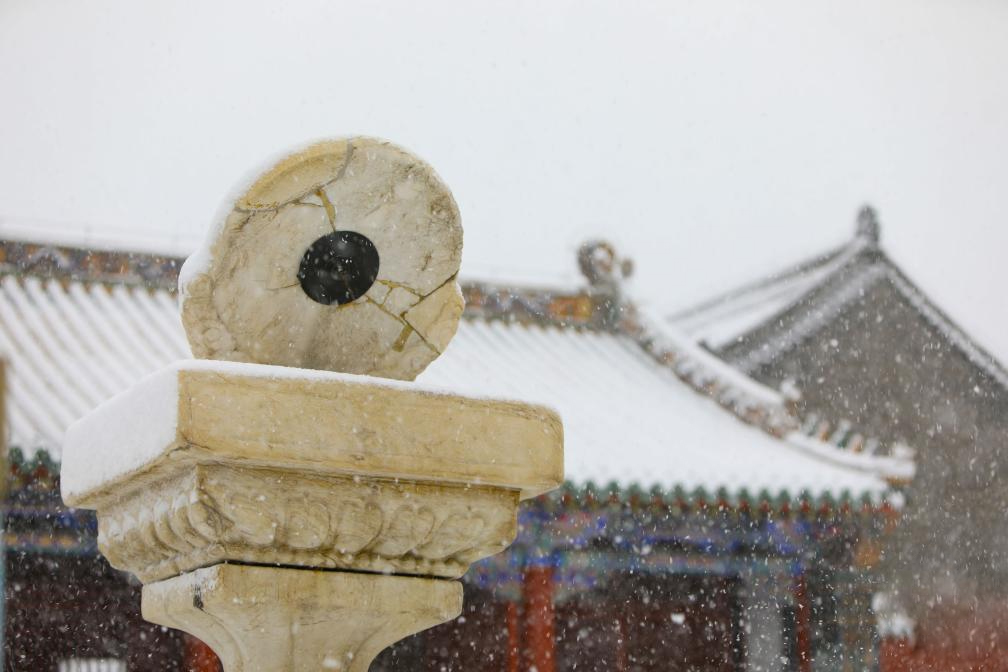Fun science awards encourage curiosity, recognize "fun and serious" research

A super slippery toilet is demonstrated at the awarding ceremony of the Pineapple Science Award in Wenzhou, east China's Zhejiang Province, Nov. 11, 2023. (Xinhua)
HANGZHOU, Nov. 12 (Xinhua) -- "Why does plucking hair make it turn white faster," "How odors affect color perception," "A super slippery toilet"... Ten fun scientific studies from home and abroad won the Pineapple Science Award in Wenzhou, east China's Zhejiang Province on Saturday.
Compared with traditional scientific research achievement awards, the Pineapple Science Award is more lively and down-to-earth. Ten categories of awards have been established based on multiple spheres, such as physics, mathematics, invention, science events, and caring for the next generation, among others.
The winner of the medical award is Sun Qi, a postdoctoral fellow at New York University's Grossman School of Medicine, and her team, who spent two years completing a "hair plucking experiment" to reveal the mechanism of hair whitening.
"Scientists have found in animals that repeated plucking accelerates the production of white hair. We use live cell imaging to record the process of hair follicle cell changes in detail and use genetic techniques to investigate the reasons behind hair turning white," said Sun during a live video connection on the scene of the award ceremony.
Her team found that when hair grows, the melanin-producing stem cells in the hair follicles undergo a set of changes, including position shifts. However, some stem cells fail to move to the correct position, resulting in insufficient melanin production and then white hair, according to Sun.
Ryan Joseph Ward, a Ph.D. student from Liverpool University in the UK, and his research team won the psychology award. They found that human senses can interact with each other.
In their study, the research team placed an aroma diffuser in a dry, odorless room that could release various scents. Participants were asked to smell the fragrances and manually adjusted color patches on a computer screen to appear gray.
The team found that when people smell caramel, they will likely adjust the colors toward brown and yellow, coffee to dark brown and red, cherry to pink and purple, and peppermint to pink.
"This is a very interesting study. We tend to perceive the world through the 'five senses' of sight, hearing, smell, taste, and touch, but apparently, these 'five senses' are not absolutely reliable and easy to 'deceive,'" said Sun Weixin, a professor at Taiwan University and a visiting researcher at the National Astronomical Observatories of Chinese Academy of Sciences.
The Pineapple Science Award rewards not only scientific research achievements but also science popularizers and significant scientific events. The "Chinese Scientists Respond to 'Science' with Science" event involving more than 100 teachers and students from 15 universities in China won the science event award.
In 2019, the journal "Science" published a study in behavioral economics where wallets containing email information were intentionally "lost" in public places to measure civic trustworthiness through the email response rate.
The results positioned China at the bottom of the so-called trustworthiness ranking. Chinese researchers widely contested this conclusion, arguing that the experimental design had significant flaws.
In response, they organized a grassroots initiative involving over 100 students and faculty from 15 universities to replicate the experiment. The findings revealed that a significant proportion of Chinese individuals, through means other than email, contacted the owner and returned the wallet, with an actual return rate close to 80 percent.
This collaborative effort not only refuted the accusation of lacking integrity among the Chinese populace but also showcased the proactive and rigorous approach of Chinese scientists in addressing scientific issues.
Ten seemingly trivial findings or inventions, such as "Exercising for an additional two hours daily will not affect academic performance," "Insects also love to play," and "Voice spoken against the wind propagates better," to name a few, won this year's Pineapple Science Award.
"The Pineapple Science Award is a good attempt to educate the public about science and stimulate the curiosity and imagination of young people through 'fun and serious' scientific interpretation and communication, and hopefully more people will get involved," said Su Jilan, academician of the Chinese Academy of Sciences and marine scientist.
First held in 2012 to honor imaginative research, the Pineapple Science Award has been a night section of the World Young Scientists Summit since 2019 that collects, honors, and disseminates imaginative research results and events.
Photos
Related Stories
Copyright © 2023 People's Daily Online. All Rights Reserved.









